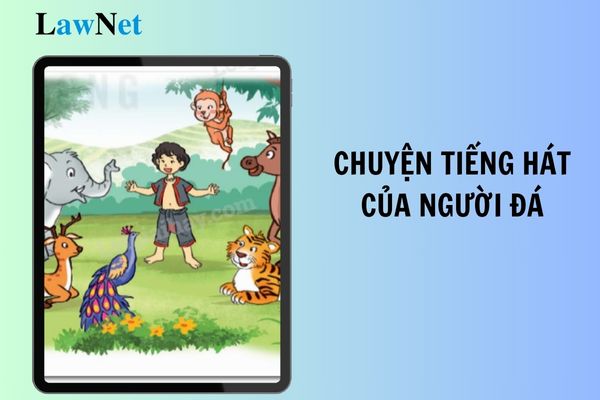What are the guidelines for proposing an alternative ending for the story "Tiếng hát của người đá"? What are the professional title grades of 5th-grade teachers at public schools in Vietnam?
What are the guidelines for proposing an alternative ending for the story "Tiếng hát của người đá"?
"Tiếng hát của người đá" is one of the texts studied in the 5th-grade Vietnamese language currriculum.
Students can refer to an alternative ending for the story "Tiếng hát của người đá" below:
A concise alternative ending for "Tiếng hát của người đá":
After defeating the enemy, Nai Ngoc did not disappear but stayed with the villagers, helping them rebuild their homes and restore the crops. She continued to sing every day, helping everyone overcome their pain and regain faith in life. Nai Ngoc’s songs became a source of spiritual encouragement, strengthening the community bond.
The villagers cherished her like a family member, and they built a small house for Nai Ngoc amidst the mountains and forests. As she grew up, Nai Ngoc decided to set out to other lands to help those in need. Before leaving, she stood atop the mountain, singing a farewell song, promising to return if the villagers ever needed her.
Whenever the moon was bright, the villagers still heard Nai Ngoc’s song echoing from the high mountains, as a reminder of courage, love, and unity within the community.
An alternative ending for "Tiếng hát của người đá" with a melancholic tone:
After the enemies were defeated, Nai Ngoc did not return to the rock mountain as before but decided to stay and help the villagers rebuild their lives. Despite her songs easing their pain and bringing hope, life in the village continued to face many difficulties. The crops failed, many families remained poor, and the villagers struggled daily.
One evening, as Nai Ngoc's song resonated through the mountains and forests, the villagers suddenly realized she was no longer standing atop the mountain. She had left without a word of goodbye. Although everyone searched everywhere, only a rock shaped like a child riding an elephant was left, like a mark of Nai Ngoc. The songs of the past still echoed in the wind, but now they felt sorrowful, as if lamenting something unfinished.
Forever, the villagers will not forget Nai Ngoc, who brought them faith and hope but also left them with an enduring sadness in their hearts.
An alternative ending for "Tiếng hát của người đá" with a mythical tone:
After the enemies were vanquished, Nai Ngoc disappeared into the mountains and forests. The villagers searched everywhere but only found strange flowers blooming on the mountain peak where she used to sing. The flowers emitted a gentle fragrance, and whenever the wind blew through, one could hear a song echoing from afar.
The elderly in the village said that Nai Ngoc was the spirit of the mountains and forests, sent by the gods to protect the villagers in times of danger. After fulfilling her mission, she merged into nature, becoming a part of the heavens and earth. The flowers on the mountain peak are her footprints, a blessing for the villagers to live in peace and happiness forever.
Since then, during every festival season, the villagers ascend the mountain peak, offering tributes and singing Nai Ngoc's songs. They believe that when needed, her song will resonate again to protect them, like an eternal legend among the Chư Bô-da mountains.

What are the guidelines for proposing an alternative ending for the story "Tiếng hát của người đá"? What are the professional title grades of 5th-grade teachers at public schools in Vietnam? (Image from the Internet)
What are the professional title grades of 5th-grade teachers at public schools in Vietnam?
Under Article 2 of Circular 02/2021/TT-BGDDT, public 5th-grade teachers have the following professional title rankings:
- Grade III primary teacher - Code V.07.03.29.
- Grade II primary teacher - Code V.07.03.28.
- Grade I primary teacher - Code V.07.03.27.
What are the professional ethics standards for 5th-grade teachers at public schools in Vietnam?
According to Article 2a of Circular 02/2021/TT-BGDDT, as supplemented by Clause 1, Article 2 of Circular 08/2023/TT-BGDDT, the professional ethics standards for 5th-grade teachers at public schools in Vietnam? are as follows:
- Adhere to the policies and guidelines of the Communist Party of Vietnam, the laws of the State, and the regulations of the education sector and localities on primary education.
- Regularly improve personal ethics, uphold a sense of responsibility, maintain the character, honor, and reputation of educators; and set a good example for students.
- Love, treat fairly, and respect students; protect the legitimate rights and interests of students; unite and assist colleagues.
- Strictly adhere to the regulations on the general responsibilities and obligations of public employees and the regulations of the Ministry of Education and Training regarding teacher ethics.

